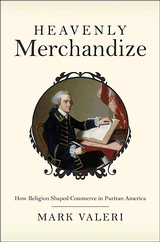Some moaning about markets
The Onion published this trenchant bit of wit, Recession-plagued nation demands new bubble to invest in, back in 2008. It feels more true with time, as we see speculators piling into obvious markets (cash for gold, anyone?) and less obvious ones, like corn, as if indeed trying to find the next bubble. People have tried to speculate since the beginnings of markets (early economists fretted about the shift of investment from agriculture to trading companies, for instance). But I wonder whether we prefer it now as a source of profits. For instance, did derivatives change our appetite for speculation? Invented to manage risk, they get written about enough that they seem like cash cows for Wall Street firms and their wealthy clients. I sometimes mean to look for statistics on derivatives as a percentage of investment activity. Would the stats show that derivatives receive more investments than the useful things they’re derived from? If so, would that explain our seeming economic need for speculative bubbles? In the last fifteen years we’ve seen speculation infect the stock market, much of the major housing markets and commodity prices, quite obviously in oil, less so in basic foodstuffs like corn and even wheat.
I’m thinking about stat-hunting again after listening to an interview on NPR’s Here and Now with Frederick Kaufman on whether Wall Street caused the 2008 food riots in various parts of the world. Kaufman wrote a Harper’s article, which I’ve not yet read, arguing that Goldman Sachs and other Wall Street firms used a wheat commodities index to drive speculation in the food markets. NPR notes a Goldman Sachs rebuttal saying the commodities index fund it created in 1991 built pools of risk capital for wheat farmers to tap. Kaufman is having none of that, though I’m not sure he makes his case, or even could in a relatively brief radio interview. Goldman is certainly correct about the intent of such funds, but that doesn’t make Kaufman wrong in saying that such intent can be corrupted. Kaufman in the end calls for a return to “a much older way of doing things,” setting up a grain reserve to offset the kind of speculation that we saw in the wheat markets. Perhaps that would work, though U.S. oil reserves did little to dampen the incredible speculation in the oil markets in the same period.
I recently interviewed a historian named Mark Valeri, who thinks going back to a time before national grain reserves would be more helpful. His book Heavenly Merchandize looks at how markets emerged in the pre-Revolutionary America. He  shows that markets were created in a time where people were more connected with those around them, and there were expectations that those who made markets would use them not just for their own gain, but with the understanding that they needed to behave in ways that did not damage the broader society, and especially the poor. Valeri shows that it took about 120 years for those ideas to be subsumed and the market came to be seen as having a natural order separate from the personalities of the people within it. Even then, those in the market aimed to behave in ways that were not good only for themselves and accepted what would seem to us like excessive regulation. That ethos sounds quaint.
shows that markets were created in a time where people were more connected with those around them, and there were expectations that those who made markets would use them not just for their own gain, but with the understanding that they needed to behave in ways that did not damage the broader society, and especially the poor. Valeri shows that it took about 120 years for those ideas to be subsumed and the market came to be seen as having a natural order separate from the personalities of the people within it. Even then, those in the market aimed to behave in ways that were not good only for themselves and accepted what would seem to us like excessive regulation. That ethos sounds quaint.
Or maybe I just have sour grapes. Having sold our house for 22 percent less than we paid for it five years ago, I feel personally poorer for derivative-driven market speculation. I knew, even without knowing about CDOs, that my house wasn’t worth what the market said at the time, and likely wouldn’t be for a long time to come. But I expected we would be in the house for that long time. I didn’t plan on a big new opportunity to arise that would cause me to want to sell the house sooner rather than later. So perhaps I’m feeling a bit sorry for myself, like I transferred wealth to someone at WAMU five years ago, and now can’t get it back. Gads. I’m sounding like I buy into Lester Thurow’s Zero-Sum Society concept, twenty years later. That’s profoundly negative of me. I really should go dig up those stats.